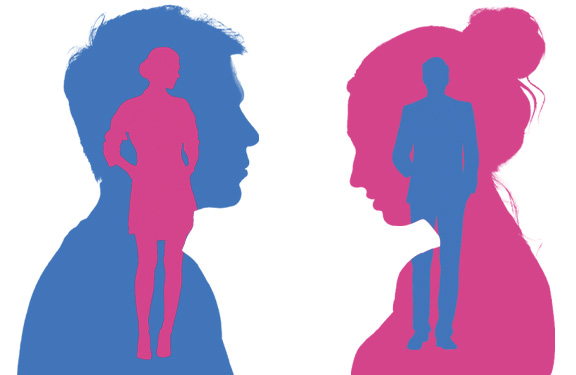

EWTN To Premiere ‘The Transgender Movement: What Catholics Need To Know’
Science Is The Common Ground On This Issue Says Mini-Series Host Mary Rice Hasson
Faith and science align when EWTN premieres the must-see mini-series entitled “The Transgender Movement: What Catholics Need To Know.” The five-part series airs 5:30 p.m. ET, Monday through Friday, Oct. 24-28, with an encore at 2:30 a.m. the following day. The entire series is also available on EWTN’s On Demand platform: https://bit.ly/TransgenderMovement.
“The transgender issue has fractured right/left divisions, and instead you’re having people come together around reality, which is why this mini-series will appeal to people on both sides of the aisle,” says Host Mary Rice Hasson, a fellow at the Ethics and Public Policy Center in Washington, D.C. and one of three co-founders of the Center’s important Person and Identity Project. “I’m tremendously grateful to EWTN for making this possible because this information is so needed; people are hungry for guidance on where they can go and how to help their families. When I go around and speak…people…say: ‘What happened? How did this happen so fast?’ …[H]ow [did] we move from [a so-called transgender] moment to [a transgender] movement?’”
In actuality, the Obama Administration began imposing many of the transgender mandates as far back as 2016. The word “sex” in Title IX was formally redefined to mean “gender identity” in May of that year. Today, Hasson’s first guest, Dr. Ryan Anderson, President of the Center where Hasson works and author of “When Harry Became Sally,” says the public hears “Catholic President Biden saying, ‘Transgender rights are the human rights issue of our generation.’” But Anderson says: “This is not a grassroots phenomenon. This is very much grass tops – not even grass tops – this is very much like the activist organizations imposing this top down.”
Hasson herself began working with the Vatican women's office under the then-Pontifical Council for the Laity almost 10 years ago to sponsor a symposium, provide resources, and credential experts “who would have a firm grip on what was happening and how to communicate the truth of the Church’s teaching” on gender issues. Today, she makes two suggestions.
First, tune in to EWTN’s mini-series to get an overview of the issue. Episode 1 offers an eye-opening cultural overview; Episode 2 looks at whether “gender-affirming” interventions help or hurt; Episode 3 looks at what the Catholic Church says about transgenderism; Episode 4 considers what parents should know; and Episode 5 talks about Catholic Pastoral Care for transgender issues.
Once you have a sense of what this is all about, Hasson suggests heading over to www.personandidentity.com for a plethora of incredible resources. This website supplies medical, public policy, diocesan, and legal resources; links to networks you can join; and a lot more. This resource is perfect for parents (https://personandidentity.com/parents/), schools (https://personandidentity.com/schools/), churches (https://personandidentity.com/churches/), the medical community (https://personandidentity.com/medical/), and other interested persons who not only want to understand what is happening but, most importantly, how to deal with it.
In its 40th year, EWTN is the largest religious media network in the world. EWTN’s 11 global TV channels are broadcast in multiple languages 24 hours a day, seven days a week to over 380 million television households in more than 150 countries and territories. EWTN platforms also include radio services transmitted through SIRIUS/XM, iHeart Radio, and over 500 domestic and international AM & FM radio affiliates; a worldwide shortwave radio service; one of the largest Catholic websites in the U.S.; electronic and print news services, including Catholic News Agency, “The National Catholic Register” newspaper, and several global news wire services; as well as EWTN Publishing, its book publishing division.
###